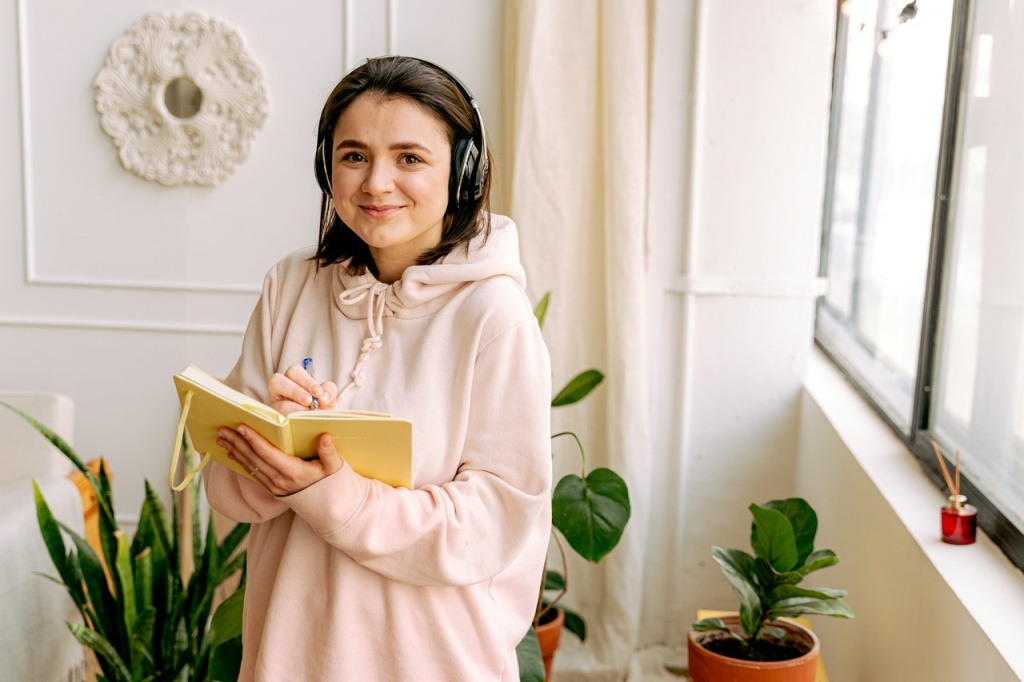
Music is a cure? Yes, and for various ailments. It helps to fight stress, calms, improves brain function, affects the development of the child in the womb..
Many of us for sure observed the influence of music on our mood. Music can energize, relax, amuse, but also calm down, cause sadness or irritation. Music has a powerful effect that scientists have also noticed. Music therapy is one way to cope with various problems.
The baby in the womb starts hearing around the 4th-5th month of pregnancy. It is well known that the sounds perceived by the fetus are not only the mother’s heartbeat, the sound of blood flowing and the parents’ voice. The baby can also hear music. Classical, relaxing, calm and rhythmic music has the best effect on the baby. Thanks to regular listening to music during pregnancy, the baby is born more musical and has a better musical memory. His central nervous system also develops much better. In addition, the little person will have a better memory, sleep, begin to speak more quickly, and the learning processes will be faster.
Doctors from the General Hospital Massachusetts conducted an experiment on patients qualified for cardiac procedures. Some of the patients listened to Mozart’s piano sonatas every day for just 30 minutes. The other half had no exposure to music. Those patients who received music therapy showed normalization of heart rate and lower blood pressure.
Music therapy is also food for the brain. It is important not only to listen to music, but above all to learn to play an instrument. It causes the development of verbal memory, the formation of neural connections between the right and left hemispheres of the brain and the development of manual skills. Learning to play any instrument translates into what is called verbal intelligence, which is the ability to speak nicely, form sentences and speak fluently.

Music is a stimulus that strongly affects our psyche. When listening to it, the brain produces neurotransmitters intensively. Increased secretion of epinephrine, norepinephrine, serotonin and dopamine, which have a significant impact on human mood.
According to scientists, the human brain is equipped with structures dedicated to the reception of music. How we respond to a given type of music depends on many areas of the brain. Our musical preferences are therefore influenced by many different factors, which is why our taste in music varies so much.
Music therapy is also used as an adjunctive therapy in the treatment of depression, neurosis and schizophrenia. It helps to reduce stress, alleviate anxiety, and improve mood. In some patients it is even observed to have an analgesic effect
Music therapy is also used in various types of neurological disorders. Positive effects are seen in people suffering from migraines and other headaches. Music can alleviate the course of a migraine, eliminate the nausea that accompanies it. Doctors have also noticed a positive effect of music therapy on people after strokes.
Music and its elements have a significant impact on the therapy of the elderly. Music therapy aims to help regain lost functions, skills and compensate for disorders. Such therapy is used to treat patients with Alzheimer’s and dementia.
To sum up – the premise of music therapy is to use the therapeutic effect of sounds on human physical and mental well-being. The application of sound therapy is very wide. From cardiology, geriatrics, through obstetrics to psychiatry. By stimulating ourselves with sound, we can influence our well-being and improve our quality of life.
Main photo: Tirachard Kumtanom/Pexels